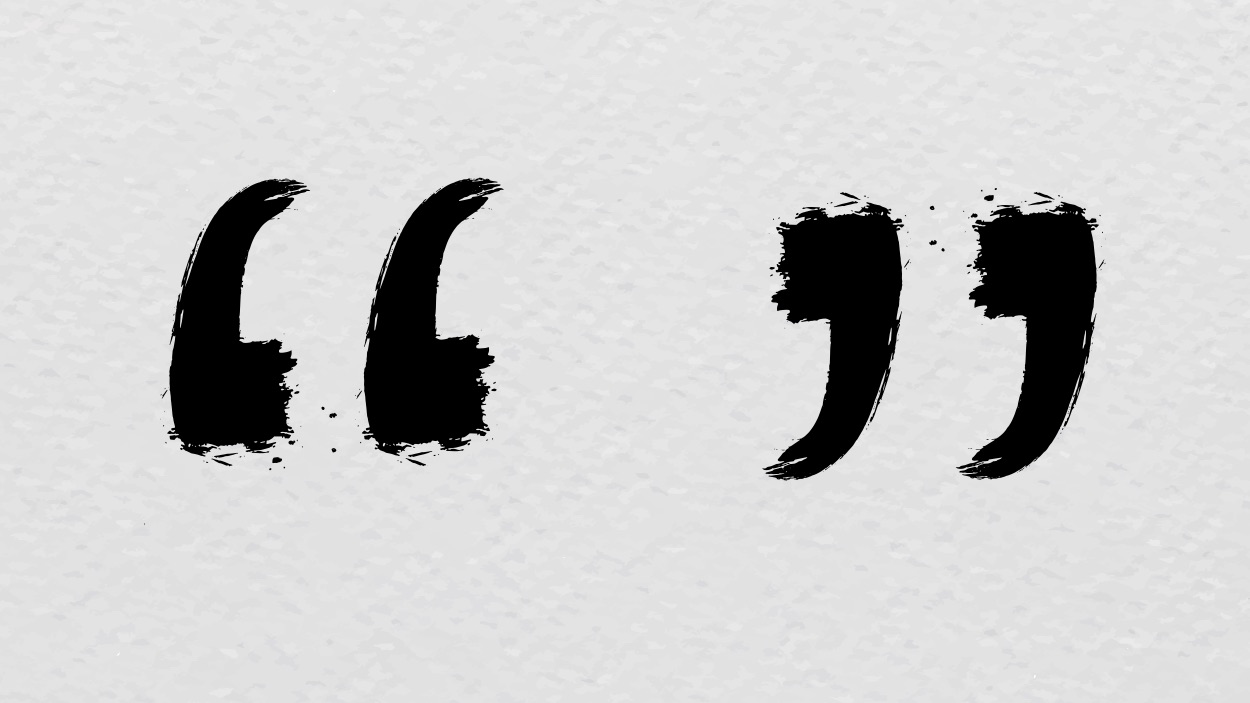One of the main things that any editor or proofreader looks out for while editing a piece of text is punctuation marks. The reason is simple — they can alter the meaning of your text if you do not use them correctly. It becomes even more prominent when you are writing an academic paper. In academic writing, an author may be easily misunderstood when ambiguous sentences are used. Punctuation marks mainly serve the purpose to disambiguate sentences. While literary or other types of writing will have a certain degree of freedom for using punctuation marks, academic work needs to be precise and correct. This article will cover the importance of punctuation marks in academic writing.

This article discusses the importance of punctuation marks in academic writing. To give you an opportunity to practice proofreading, we have left a few spelling, punctuation, or grammatical errors in the text. See if you can spot them! If you spot the errors correctly, you will be entitled to a 10% discount.
One of the main things that any editor or proofreader looks out for while editing a piece of text is punctuation marks. The reason is simple — they can alter the meaning of your text if you do not use them correctly.
Imagine texting your colleague ‘‘Let’s eat Carla’’ or ‘‘Let’s eat kids’’ without a comma after ‘‘eat.’’ Here, you are implying that you eat Carla or kids, not eat with Carla or with the kids. The correct sentence here is ‘‘Let’s eat, Carla’’ and ‘‘Let’s eat, kids.’’ Thus, it is extremely important to look out for the correct use of punctuation marks.
It becomes even more prominent when you are writing an academic paper. While literary or other types of writing will have a certain degree of freedom for using punctuation marks, academic work needs to be precise and correct. In academic writing, an author may be easily misunderstood when ambiguous sentences are used. Punctuation marks mainly serve the purpose to disambiguate sentences. With that thought in mind, in this article, we will cover the importance of punctuation marks in academic writing.

We shall start by understanding why the correct use of punctuation marks is important. Below are the reasons why using the correct punctuation mark in the right place is so crucial. It is especially so in the case of academic writing:
Right punctuation allows your readers the perceive the right message of your text.
In academic writing, punctuation marks can help strengthen your arguments and reasoning in the text form.
Missing punctuation marks or misused ones can completely alter the meaning of a sentence.
It helps emphasize pauses, thoughts, ideas, and even the tone and emotion of the text.
Now that we have understood the reason why punctuation is so important, we shall now move on to discuss the different types of marks out there. We will also provide you with relevant examples so that you understand the differences.
If you are ready, let us start!
A period is one of the most commonly used punctuation marks and is popularly known as a full stop. As its name suggests, it is mostly used at the end of a sentence to denote that it has ended. It is placed after a declarative sentence and a statement. It is also used after abbreviations.
For example:
|
End of a sentence |
I worked from morning to evening. |
|
After abbreviations |
He is Dr. Jonathan of the ER dept. |
The next most commonly known and used among the punctuation marks is the comma. The comma denotes a small pause or gap anywhere in the middle of a sentence to provide more clarity. A comma can be used for various instances, like grouping items, separating phrases, and so on. However, misusing commas or overusing them can be a huge issue.
For example:
Incorrect: We will learn how to cut and paste children!
This can imply a pretty horrific meaning. However, the right sentence is:
Correct: We will learn how to cut and paste, children!
Incorrect: I was ready to leave, but it started raining, so I called a taxi, but it was late, so I was late.
There is no need for so many commas. Instead, you can break down the sentence.
Correct: I was ready to leave when it started raining. So I called a taxi, but because it was late I was late too.
Other examples:
|
In lists: |
I need to buy coffee, mayonnaise, and eggs from the grocery store. |
|
Direct speeches: |
He exclaimed, “Watch out!” |
|
In lists |
I need to buy coffee, mayonnaise, and eggs from the grocery store. |
|
Direct speeches |
He exclaimed, “Watch out!” |
There’s also a type of comma known as the ‘‘Oxford Comma.’’ This type of comma is mainly used when talking about three items or more in a sentence. It is placed before the last item that you listed. Without an Oxford comma, you may confuse your audience.
For example:
Incorrect: I love my parents, Mother Teresa and Barack Obama
Here, your audience might think that your parents are Mother Teresa and Barack Obama.
Correct: I love my parents, Mother Teresa, and Barack Obama.
Other examples:
We need to choose between samples A, B, or C.
The survey depended on the age, gender, and location of the participants.

One of the common punctuation errors in academic writing is the use of commas and semi-colons. As mentioned above, a comma separates items in a list but does not distinguish two independent sentences from each other. For example:
Smith had never ridden on the back of a camel, he tried out of curiosity.
A semi-colon is the correct punctuation mark to use in place of the comma as both clauses are independent, with the second clause providing an explanation for the first. A comma is only appropriate in this instance if conjunction follows the comma. In which case, there would not be a need for a semi-colon.
Correct: Smith had never ridden on the back of a camel; he tried out of curiosity.
OR
Correct: Smith had never ridden on the back of a camel, so he tried out of curiosity.
An exclamation mark is used at the end of a sentence that either expresses surprise or exclamation and in a direct speech that denotes that the speaker is either speaking loudly or shouting. It is also used when the author finds something amusing and is usually written within brackets like this: (!)
Here are some examples:
|
Denoting surprise or exclamation |
Hi! How can I help you? |
|
Denoting a shout or scream |
The guard shouted, “Watch out!” |
|
Denoting amusement |
To think they would not recognize me! |
The question mark is another punctuation mark that is used often, and the meaning is well understood. It is used after a question is asked in direct speech.
When will you return home?
The next punctuation marks to discuss are colons and semicolons. A colon is a mark used after a word to introduce an explanation, example, or another phrase that explains the first one.
Here are some examples:
There were three variants: green, blue, and red.
We did not go to the fair: we were already late.
A semicolon serves the purpose between a period and a comma. It is used as a pause which is a little stronger than a comma but not as definitive as the period. It is used where two clauses are related to one another and can be written in one sentence.
For example:
We experimented for three days; it was successful.
A lot of times, people tend to confuse semicolons and colons with each other. However, please pay attention to such mistakes.
For example:
Incorrect: He bought the following food items; burger and coke.
However, this sentence is wrong because the phrase ‘‘burger and coke’’ is a dependent clause. Therefore, the correct sentence would be:
Correct: He bought the following food items: burger and coke.
Now that we know what punctuation marks are and why they are important, you can understand why the academic field is so stern about them. After all, the wrong punctuation marks can completely alter the meaning of your sentence or even convey the wrong message. Therefore, make sure to learn about punctuation marks and use them appropriately.
Best Edit & Proof expert editors and proofreaders focus on offering manuscripts with proper tone, content, and style of academic writing, and also provide an upscale editing and proofreading service for you. If you consider our pieces of advice, you will witness a notable increase in the chance for your research manuscript to be accepted by the publishers. We work together as an academic writing style guide by bestowing subject-area editing and proofreading around several categorized styles of writing. With the group of our expert editors, you will always find us all set to help you identify the tone and style that your manuscript needs to get a nod from the publishers.
You can also avail of our assistance if you are looking for editors who can format your manuscript, or just check on the particular styles for the formatting task as per the guidelines provided to you, e.g., APA, MLA, or Chicago/Turabian styles. Best Edit & Proof editors and proofreaders provide all sorts of academic writing help, including editing and proofreading services, using our user-friendly website, and a streamlined ordering process.
Kindly visit our order page if you want our subject-area editors or language experts to work on your manuscript to improve its tone and style and give it a perfect academic tone and style through proper editing and proofreading. The process of submitting a paper is very easy and quick. Click here to find out how it works.
Our pricing is based on the type of service you avail of here, be it editing or proofreading. We charge on the basis of the word count of your manuscript that you submit for editing and proofreading and the turnaround time it takes to get it done. If you want to get an instant price quote for your project, copy and paste your document or enter your word count into our pricing calculator.
Contact us to get support with academic editing and proofreading. We have an active live chat module to offer you direct support along with qualified editors to refine and furbish your manuscript.
Follow us on Twitter, LinkedIn, Facebook, Instagram, and Medium.
For more posts, click here.
How to Determine Variability in a Dataset
14.10.2023
How to Determine Central Tendency
19.02.2023
How to Specify Study Variables in Research Papers?
14.01.2023
Population vs Sample | Sampling Methods for a Dissertation
14.01.2023
How to Ensure the Quality of Academic Writing in a Thesis and Dissertation?
04.12.2022
How to Avoid Anthropomorphism in Your Dissertation?
04.11.2022
How to Write a Research Methodology Section for a Dissertation and Thesis
07.08.2022
How to Write a Theoretical Framework for a Dissertation and Thesis?
05.08.2022
How to Write Literature Review for a Dissertation and Thesis
02.08.2022
How to Write a Dissertation and Thesis Introduction
31.07.2022

Submitting a journal article can be a nerve-wracking experience. After all, this piece of work requires hours of research, analysis, and work poured into it. Therefore, you would wish for it to be acknowledged, selected, and published. This guide will give you some crucial answers, so go ahead and take a read. This way, you can ensure that your journal submission is devoid of any hassle.
Continue Reading
Being a proofreading and editing service provider, we often find researchers making common citation mistakes in their research papers. Well, making mistakes is normal, but repeating the same mistakes is not accepted. Recognizing the gravity of the situation, we here bring the list of common errors students and researchers make while citing sources.
Continue Reading
What is academic writing? In simplest words, academic writing is a style of writing used in the academic field and adopted by academic institutions or scholarly publications. You might encounter academic writing in peer-review journals, books, articles, and you are expected to write your manuscripts, dissertations, essays, or thesis in the academic style. Academics and students use this style to convey complex ideas and theories clearly and precisely to their readers. Therefore, as a student, especially for the ones getting higher education, it is needed for you to learn this way of writing and adopt it.
Continue Reading
Academic writing is the type of writing style that requires a lot of attention to details, rules, and regulations. Mainly used for, as you might have guessed, academic purposes, it is one of the most common writing styles for professional works. However, as regulated and strict it is, it is also easier to make mistakes here. One such very common mistake that happens all the time for several researchers is sentence structuring. Sentence structuring has always been a little tricky, academic writing or not. That is why a great emphasis is made on them during the editing and proofreading phases. This article discusses the most common sentence structuring mistakes and how you can avoid them.
Continue Reading
This reference guide explains how to format your academic documents in Microsoft Word 2022, giving you the fundamental rules for formatting your academic papers as described in most guidelines, such as MLA and APA styles. The rules discussed in this guide apply to most of the academic papers you will submit as college assignments or articles for journals.
Continue Reading
The American Psychological Association (APA) introduced the 7th edition of the APA Publication Manual in October 2019. This edition replaced the previous one, the 6th edition of the manual. Since then, several things have changed. The latest edition also updated the formatting of digital object identifiers (DOI) in APA Style. This article addresses when to include DOIs and uniform resource locators (URLs) in APA Style references.
Continue Reading
An abstract, is an important part of an academic work and a synopsis of a longer study such as a dissertation or thesis. Its most critical aspect is precise reporting of the objectives and outcomes of your research. Thus, the readers can learn about your work by perusing your abstract.
Continue Reading